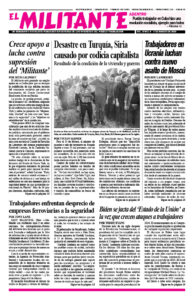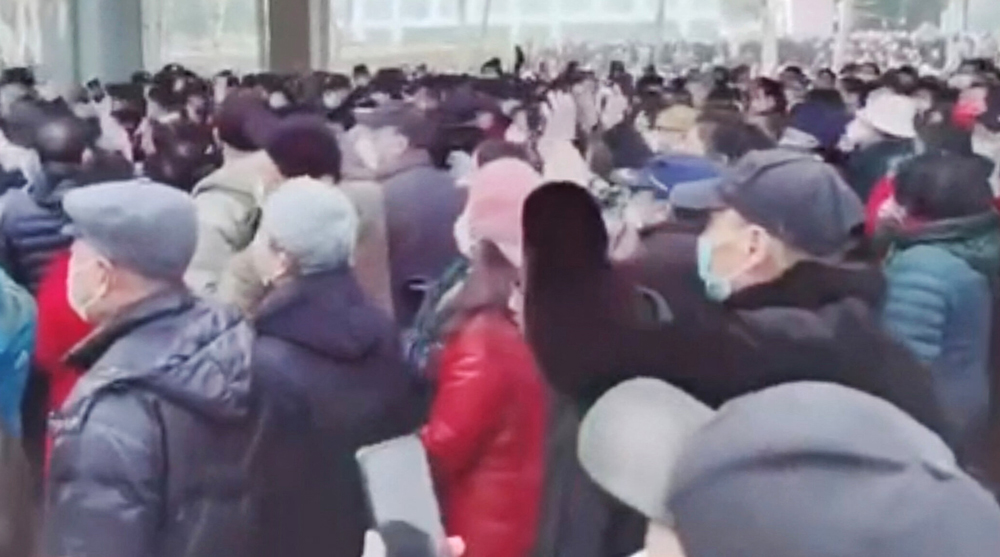Thousands of working people, mostly older retirees, have been demonstrating in China since the government announced Feb. 1 the most significant health care reforms in over two decades. In reality, the “reforms” give the regime the ability to steal the hard-earned money out of the health care accounts of workers.
At Renmin Square in the port city of Dalian, protesters chanted, “Give us back our money!” Two actions were organized in Wuhan Feb. 15, in Zhongshan Park and in front of Wuhan Union Hospital. Authorities kept the metro from stopping at nearby stations and “video showed shoving matches” with police, reported the Washington Post. “Some tried to climb barriers to escape the melee but were pulled back by uniformed officers.” A number of protesters, including retired steelworkers and ironworkers, were detained by police.
Most workers in China have medical coverage from two sources: state-funded communal insurance and an individual health savings plan they and their employers contribute to each month.
Local officials are cutting back the amount retirees can claim from the personal accounts. For example, medicine is being reimbursed at one-third of the previous amount. These reductions, the government claims, will be used to expand public health care.
Retirees say they were never consulted about the changes. To them, “it looks like local governments are dipping into citizens’ personal health savings accounts to cover budget shortfalls,” NPR reported. China’s local governments are heavily in debt due to a slowing economy and large expenses run up during the COVID-19 pandemic.
In Wuhan, “Lui Meixiang was shocked when she found out her monthly health care payment had been cut by nearly two-thirds in early February,” the South China Morning Post reported. “Usually the 66-year-old receives 230 yuan [$34] per month for her outpatient expenses, but when she checked her balance this month she had been paid just 83 yuan. ‘It is a big loss especially to old people who suffer from chronic illness like me,’ she said. ‘I don’t believe in the government’s claim that the cuts will finally help us make more savings.’”
Wuhan resident Zhang Hai told Reuters, “This money is very little but to old people, it is life-saving.”
On social media, one supporter of the demonstrations posted, “These old people can come out [to protest] not only for themselves but also for future generations.” Another said, “If you reduce the basic living allowance for the people, who would trust the government in the younger generation?”
Resentment is rising against senior and retired Chinese Communist Party officials, who “have long had access to generous medical treatments at public expense and without having to pay for basic health care insurance,” said the Guardian.
The new plan is also pitting workers who have more funds in their personal accounts against lower-income workers, the unemployed and those in poorer regions, who rely solely on state health insurance. “China has one of the world’s highest levels of income inequality,” the New York Times reported Feb. 16. The unemployment rate for those aged 16 to 24 is almost 17%.
The government also said it intends to raise the retirement age starting in 2025. The current retirement age is 60 for men, 55 for women working in offices and 50 for women in industry.


